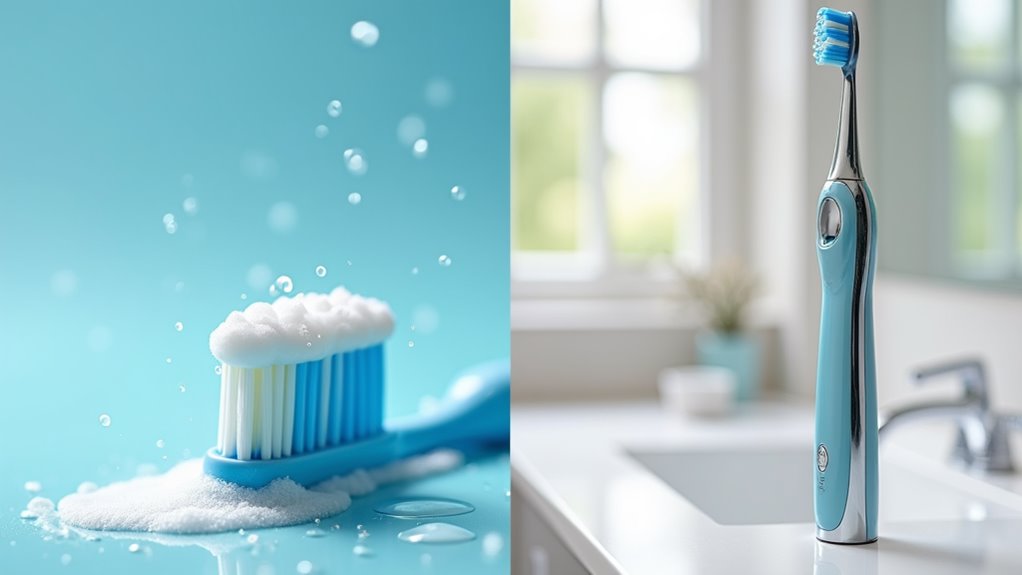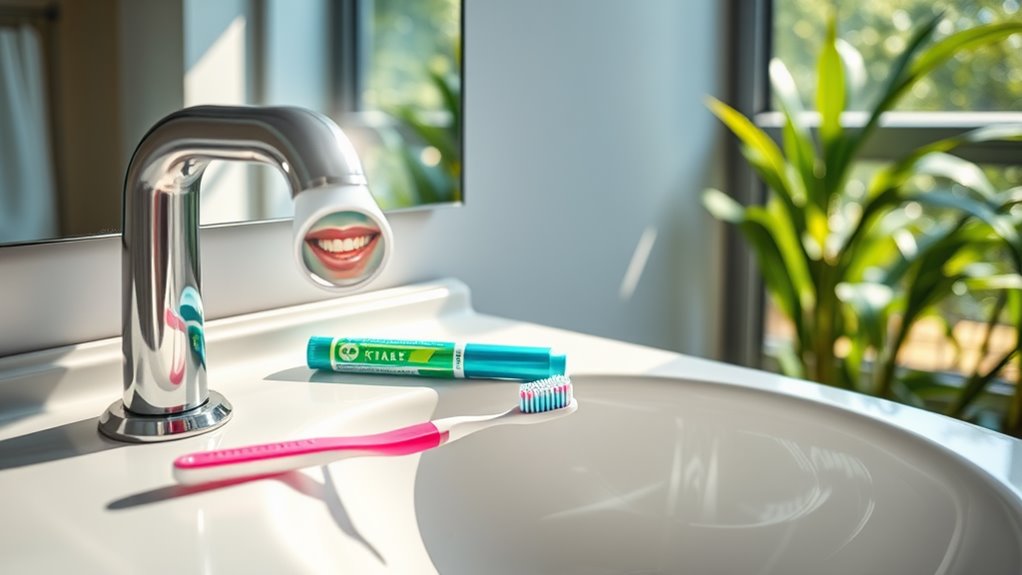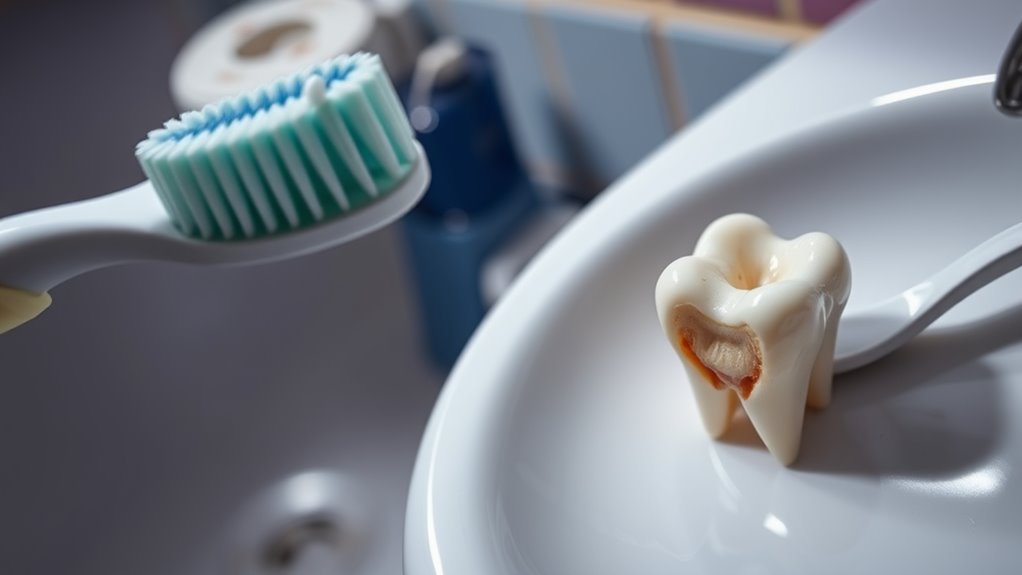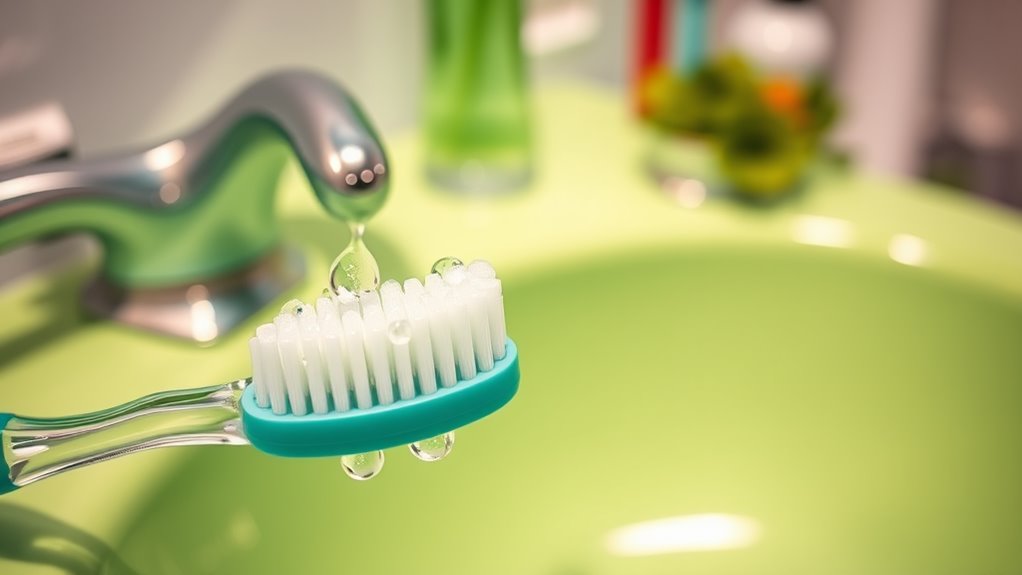Are Electric Toothbrushes REALLY Better. The Answer Will Shock You!
You’ve probably wondered if it’s worth spending extra money on an electric toothbrush when manual ones are so affordable. The answer isn’t as straightforward as you might think. While both types can effectively clean your teeth, recent studies have uncovered surprising facts about electric toothbrushes that could change how you approach your daily dental routine. Let’s explore what dentists and researchers have discovered about these powered cleaning tools.
The Science Behind Electric vs. Manual Brushing
While manual toothbrushes can effectively clean teeth with proper technique, electric toothbrushes provide distinct mechanical advantages.
These powered devices deliver thousands of brush strokes per minute, far surpassing what you can achieve manually. The rapid oscillations break up plaque more efficiently and reach deeper between teeth.
Research comparing electric vs manual toothbrush performance shows that powered brushes reduce plaque by 21% and gingivitis by 11% after three months of use.
You’ll find that electric models often include built-in timers, pressure sensors, and multiple cleaning modes – features that optimize your brushing routine. The consistent mechanical motion also compensates for imperfect technique, especially beneficial if you have limited mobility or orthodontic appliances.
Advanced electric toothbrushes now incorporate sonic technology, creating fluid dynamics that clean beyond where bristles actually touch.
This gives you superior interdental cleaning and better reach along the gumline. Additionally, maintaining good oral hygiene can help reduce inflammation and lower the risk of related health issues.
Cost Analysis and Long-Term Investment
Although electric toothbrushes have a higher upfront cost than manual ones, they often prove more economical over time. You’ll find that premium electric models typically range from $50 to $200, while replacement heads cost around $5-10 each.
When you consider that dentists recommend replacing manual toothbrushes every three months at $3-5 each, the long-term investment becomes clearer.
-
A quality electric toothbrush can last 3-5 years with proper maintenance, spreading the initial cost across multiple years of use.
-
Advanced models include pressure sensors and timers that help prevent aggressive brushing, potentially reducing future dental work expenses.
-
Many electric toothbrushes come with warranties, protecting your investment against manufacturing defects and mechanical failures.
The smart technology in modern electric toothbrushes delivers consistent cleaning performance, making them a worthwhile investment in your oral health that can save you money on dental procedures down the road.
Clinical Studies and Expert Opinions
What does scientific research tell us about electric toothbrushes? Clinical studies consistently show that electric models remove 21% more plaque than manual brushes and reduce gingivitis by 11% over three months. A landmark 2014 Cochrane review analyzing 56 studies confirmed these findings across diverse populations.
You’ll find dentists increasingly recommending electric toothbrushes, particularly for patients with limited mobility or orthodontic appliances. Dr. Sarah Chen, a leading periodontist, notes that “the oscillating-rotating technology proves superior in accessing hard-to-reach areas.”
The American Dental Association has awarded its Seal of Acceptance to several electric models based on rigorous testing protocols.
Recent studies using 3D mapping technology demonstrate that electric toothbrushes achieve more consistent cleaning patterns, especially along the gumline where periodontal disease often starts.
The evidence supporting their effectiveness continues to grow, with newer research focusing on smart features that track brushing habits and provide real-time feedback.
Making the Right Choice for Your Dental Health
Selecting the ideal electric toothbrush can feel overwhelming with dozens of models on the market. You’ll need to consider your specific dental needs, budget, and lifestyle preferences to make an informed decision.
Modern electric toothbrushes come packed with innovative features like pressure sensors, smart apps, and specialized cleaning modes.
-
Match your brushing style – If you’re heavy-handed, choose a model with pressure sensors to prevent gum damage. For precision cleaning, opt for units with smaller brush heads and targeted modes.
-
Consider connectivity – Smart toothbrushes sync with apps to track your habits and technique. They’ll provide real-time feedback and personalized coaching to optimize your routine.
-
Evaluate core features – Focus on essential elements like battery life, charging options, and brush head replacement systems. Proper technique can elevate your dental care routine and ensure that you’re getting the most out of your electric toothbrush.
Don’t get distracted by bells and whistles that you won’t actually use.




